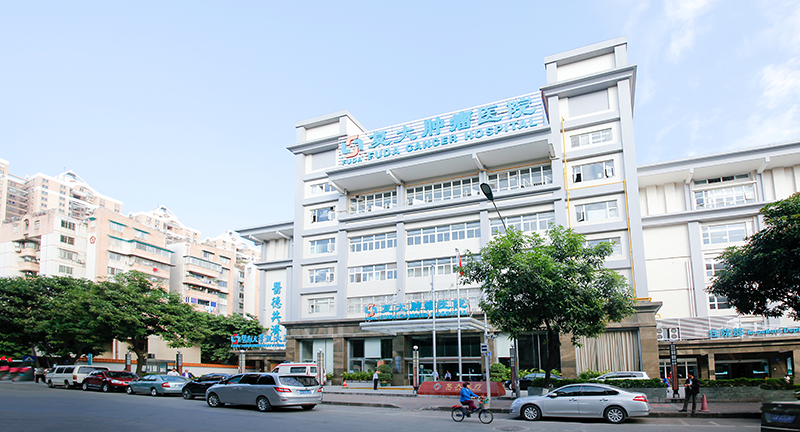1. Why Choose China for Cancer Treatment?
China has accumulated extensive experience in oncology, especially in minimally invasive interventions, targeted therapy, and immunotherapy. With mature technologies and cost-effective options, it has become a preferred destination for Malaysian patients seeking high-quality cancer care.
2. Recommended Hospitals for Malaysian Patients
Hunan Cancer Hospital
· Advantages:
· Mature experience in targeted therapy.
· Provides detailed international services such as cold-chain drug handling.
· Case: Malaysian breast cancer patients have undergone multiple rounds of targeted therapy here.

Fuda Cancer Hospital (Guangzhou)
· Advantages:
· Specializes in cryoablation and NanoKnife minimally invasive techniques.
· Has treated a large number of Malaysian breast cancer patients.
Top Tertiary Hospitals in Shanghai/Beijing (International Departments)
· Advantages:
· Support online appointments and English services.
· Convenient process with higher costs.
· Examples: Fudan EENT Hospital, Peking Union Medical College Hospital International Medical Department.
3. Medical Procedures and Requirements
1. Step 1: Preparation
· • Translate medical records into English, including pathology reports, CT/MRI images, and treatment history with hospital stamps.
· • Book online appointments via hospital websites or apps like WeDoctor or 114 Booking. Choose 'passport' as ID and enter Malaysian passport number.
2. Step 2: Visa and Entry
· • Apply for an S2 medical visa with an invitation letter and appointment proof from the Chinese hospital.
· • The visa is usually valid for 90 days and can be extended in China.
3. Step 3: On-site Consultation
· • Bring passport, visa, invitation letter, and insurance documents (if any).
· • Translation services available (approx. 200–400 RMB/day).
4. Treatment Costs and Payment Methods
· Estimated Costs (in RMB):
· • Minimally invasive surgery: ¥80,000–¥150,000 (e.g., seed implantation, cryoablation)
· • Targeted therapy: ¥120,000–¥300,000/year; after insurance approx. 30% self-pay (for Chinese residents)
· • Immunotherapy (e.g., PD-1): ¥100,000–¥250,000/year
· • Combined comprehensive treatment: ¥150,000–¥500,000+
· Payment Methods:
· • UnionPay, Visa, MasterCard, or bank wire transfer
· • Confirm with your insurer (e.g., AIA, Prudential) about overseas treatment coverage
· • Foreigners cannot join China's public insurance, but some hospitals offer drug donation programs (e.g., 'buy 3 get 3 free')
5. Practical Tips
· • Language: Many hospitals in Guangzhou/Shanghai offer Malay or English interpreters.
· • Accommodation: Nearby serviced apartments available (¥200–¥400/day).
· • Transportation: High-speed rail is available (e.g., Guangzhou to Changsha in 4 hours).
· • Halal food: Available in many hospitals. Cities like Guangzhou offer Malaysian-style cuisine.
· • Community: Join online groups like Facebook’s 'Malaysians Seeking Medical Care in China' for experience sharing.
6. Risk Mitigation Advice
· • Choose hospitals certified by China’s Health Commission (Class-A Tertiary Hospitals).
· • Be cautious of overly optimistic ads or agents promising a guaranteed cure.
· • Keep all stamped medical records and receipts for insurance claims or dispute resolution.